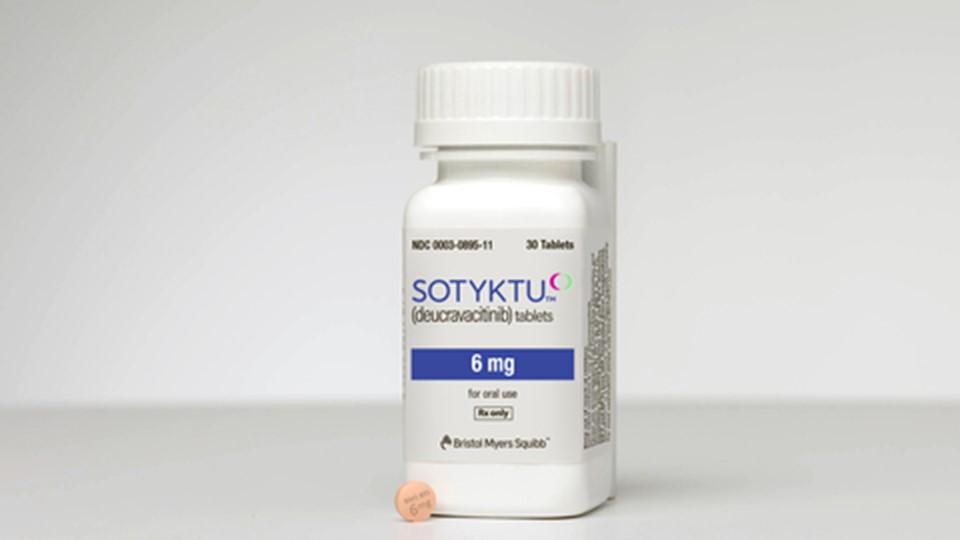BMS’ Sotyktu cleared for NHS use in psoriasis

Just a few weeks after its approval in the UK, Bristol-Myers Squibb’s new oral psoriasis therapy Sotyktu has been recommended for routine NHS in England and Wales.
The National Institute for Health and Care Excellence (NICE) has backed the use of the first-in-class Tyk2 inhibitor as an option for treating adults with moderate to severe plaque psoriasis who meet various eligibility criteria.
Those include having a Psoriasis Area and Severity Index (PASI) of 10 or more – indicating that lesions cover at least 10% of their body – and a Dermatology Life Quality Index (DLQI) score above the threshold of 10 on a 30-point scale. The higher the DLQI score, the more quality of life is impaired.
Sotyktu (deucravacitinib) can be used only in patients whose symptoms have not responded adequately to other systemic treatments, including ciclosporin, methotrexate, and phototherapy, or are unable to tolerate those therapies.
According to the guidance, doctors should also “consider stopping” treatment with Sotyktu after 16 to 24 weeks of treatment if there have not been sufficient improvements in PASI scores, and cheaper options should be considered if appropriate.
The list price of deucravacitinib is £690 per 28‑tablet pack before VAT, but BMS has agreed to supply the drug to the NHS at a confidential discount.
Laura Stevenson, deputy chief executive at patient advocacy group the Psoriasis Association, welcomed the decision, pointing out that psoriasis affects over a million people across the UK “and, for some, it can have a significant life impact.”
“It is therefore hugely important for the community to have access to a variety of treatments, including new therapies such as deucravacitinib,” she said.
The NICE decision is a positive step in BMS’ rollout of the drug around the world, as it chases down a peak sales target for the drug of around $4 billion a year. The Scottish Medicines Consortium (SMC) has not yet issued a decision on the drug, but is in the process of reviewing it.
In trials, Sotyktu was found to be more effective at treating moderate-to-severe psoriasis than Amgen’s PDE4 inhibitor Otezla (apremilast), which was recommended by NICE for a similar patient group in 2016.
BMS said in its first-quarter results update that Sotyktu had made rapid gains in the US – where the drug was first approved last September – in the first six months since launch, with a 30%-plus market share in the oral psoriasis category. The company is also developing the drug for follow-up indications including psoriatic arthritis and systemic lupus erythematosus (SLE).













